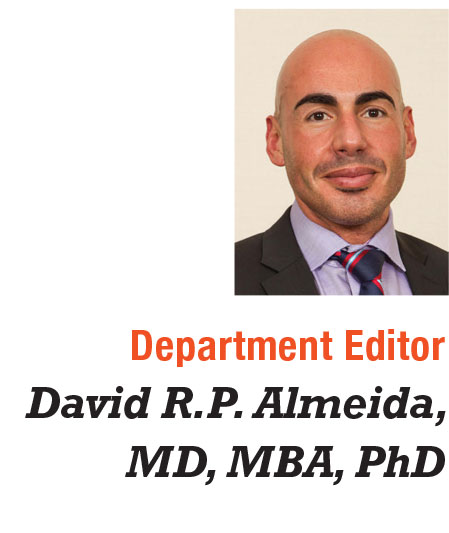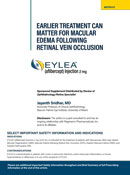 |
|
Bios Dr. Almeida is a vitreoretinal surgeon at Erie Retinal Surgery in Erie, Pa. DISCLOSURE: Dr. Almeida reports no relevant financial relationships. Twitter: @davidalmeidamd Email: [email protected] |
Previously I covered how retina specialists can combat false claims on social media with strategies to mitigate misinformation, disinformation and propaganda. Unfortunately, doing so may lead to physicians being attacked for their social media statements.
Physicians are not spared
A recently published research letter in JAMA Internal Medicine states that one in four physicians who use social media reported being personally cyberbullied, and one in six women physicians faced the additional threat of being sexually harassed online.1 It’s worth noting that this study was performed prior to the COVID-19 pandemic, and this has significant implications for physicians on social media today.
Cyberbullying refers to a disparate number of online methods used to intimidate others. This may vary in scope and severity from online trolling (e.g., disinformation or propaganda comments in reply to a physician post), anonymous calls to practice or hospital leadership “reporting” the physician’s online statements, or doxxing—defined as violation of privacy by having your personal information published online.2 A complicating factor is that the three characteristics that define bullying—intent, repetition and power imbalance—don’t always translate directly in digital behaviors.3
Like a punch in the mouth
Cyberbully attacks are unfortunate and unwarranted responses to what I believe is your genuine online voice aimed at promoting health. However, these bruises, blisters and burns will need to be negotiated within the rocky evolving landscape of social media.
So, given the likelihood of cyberbully insults, what is your best strategy to counter? Boxer Mike Tyson once said, “Everyone has a plan until they get punched in the mouth.” What happens when you and your online voice get punched in the mouth?
Maintain your integrity
Foremost, realize and accept that you will eventually get cyberbullied or trolled online. When it does happen, be composed and don’t be rattled, but be committed to your message. No shame in taking a punch, especially if your counterattack is poised and positioned. There’s courage and power in vulnerability so don’t waste this opportunity to emphasize your communication.
Second, be deliberate in your response and maintain the integrity of your online brand. As a retina specialist and physician, your social media voice can be a tremendous asset to the online advocacy of a position you feel strongly about. Whether it’s discussing myths concerning a given treatment or speaking out on social justice, your Twitter posts or website comments can be victories when they empower patients, colleagues or the public at large.
Strength in numbers
Finally, if you find the cyberbullying incessant, look for strength in numbers. Groups like #medtwitter (www.twitter.com/hashtag/MedTwitter) are examples that, collectively, we have a louder online voice than as isolated individuals.
Not only do these groups offer support to individual members; they offer insights and solutions to online conflicts that likely have happened to other physicians. RS
REFERENCES
1. Pendergrast TR, Jain S, Trueger NS, Gottlieb M, Woitowich NC, Arora VM. Prevalence of personal attacks and sexual harassment of physicians on social media. JAMA Intern Med. Published online January 4, 2021. doi: 10.1001/jamainternmed.2020.7235.
2. Arora V, Pendergrast T, Jain S. Doctors on social media are being cyberbullied and sexually harassed. It’s time to change that. Stat. Posted January 5, 2021. https://www.statnews.com/2021/01/05/doctors-on-social-media-are-being-cyberbullied-and-sexually-harassed-its-time-to-change-that/ Accessed February 5, 2021.
3. Englander E, Donnerstein E, Kowalski R, Lin CA, Parti K. Defining cyberbullying. Pediatrics. 2017;140(Suppl 2):S148-S151.



